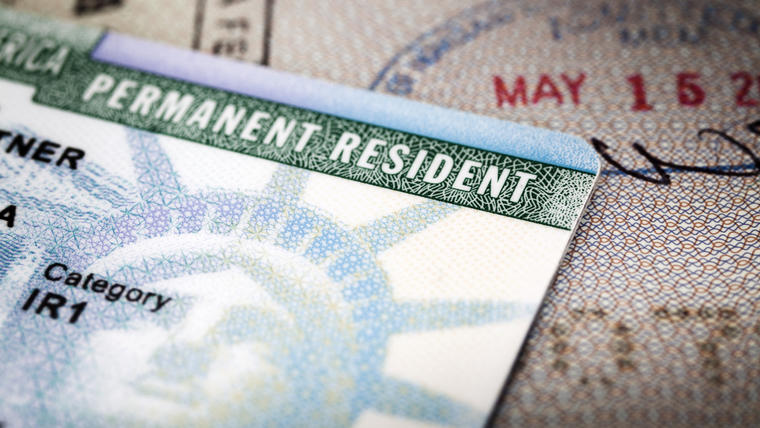The United States Government is at risk of
losing about 100,000 permanent residences (green cards or
gren cards
) based on employment
this year, because the federal agency in charge of their issuance faces historical delays in processing applications due to the complications related to the COVID-19 pandemic.
As reported by
The Wall Street Journal
, the situation complicates what has already been the one-year wait for many of the
1.2 million immigrants, most
of whom
are natives of India, work in the technology sector and have gone through the legal processes
to become permanent residents of the United States.
The United States Citizenship and Immigration Services (USCIS) began its fiscal year in October 2020 with an additional
120,000 green cards to the 140,000
it normally issues each year.
But with less than two months until the fiscal year ends, it is far from reaching that goal.
[New immigration policies will make it easier to obtain residency and other visas, USCIS reported]
No recent data is available on how many employment-based green cards have been processed, but Charlie Oppenheim, a State Department official, said in a YouTube forum in July that he estimated the government would end September with about 100,000.
raw
green card
applications
.
Any green cards that are not processed by the end of September will expire.
I have to go to court for a DUI.
Should the judge decide on my 'green card'?
July 1, 202102: 44
Since the start of the pandemic, the USCIS has experienced budget problems and reduced processing capacity, resulting in green cards being approved at a very slow rate.
The Wall Street Journal
states that, according to government data,
green card
applications
are taking, on average, about 10.5 months to complete, two months longer than last year.
In some extreme cases, residency applications have taken up to five years.
A group of 125 Indian and Chinese nationals have filed a lawsuit in US courts over the slow adjudication of green cards in an attempt to save applications that expire at the end of the fiscal year.
I paid for a conditional green card seven months ago and it still hasn't reached me.
Is the wait normal?
July 1, 202102: 23
[A court rules against immigrants with TPS from receiving the green card]
The plaintiffs filed applications for permanent residence on or before December 2020, together with their dependent family members (spouses and unmarried minor children).
The lawsuit says that the Department of Homeland Security did not adjudicate the applications in the due time, so that "hundreds of thousands" of green cards will expire and
hundreds of thousands of Indian and Chinese professionals will lose the opportunity to become permanent residents.
Many face the possibility of a delay that could last several years.
“
Failure to fully award all available visas in a fiscal year is a government waste
of epic proportions.
Congress created a provision for unused visas from the family category to be processed under the employment category, ”said Jeff Joseph, one of the attorneys who filed the lawsuit.
"The illegal withholding of the adjudication of those visas by the USCIS frustrates the intent of Congress, further exacerbates the historic delays for the citizens of China and India, and is simply an administrative waste."
These are the TPS beneficiaries who will not be able to obtain their residency after the Court's ruling
June 8, 202103: 22
[Biden ends Trump's veto on visas and labor green cards]
Without a drastic review of processing times, the administration of President Joe Biden will make one of the largest cuts to legal immigration in US history.
However, experts warn that the
beginning of this delay happened during the administration of former President Donald Trump,
who prohibited most immigrants sponsored by their relatives from entering the United States.
This meant that 120,000 places for family green cards were not used.
“
The Trump Administration should have anticipated that a major effort would be needed to adjudicate the additional 120,000 job-based applications.
And he had a long time to prepare a response: Trump signed his executive order prohibiting the entry of most family members in April 2020. But no plan ever materialized, "said David J. Bier, a researcher at the Cato Institute, in a column published in
The Washington Post.
With information from AP, The Economic Times and The Washington Post.

